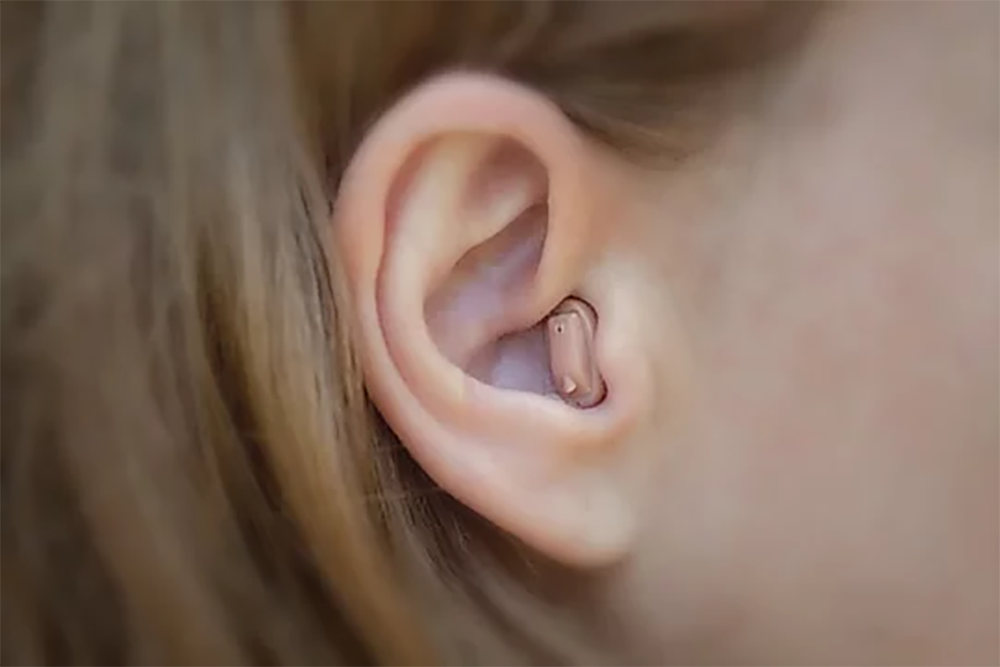Discover the Best Hearing Aids for Seniors 2025: Quality and Price in Focus
Navigating the world of hearing aids can be overwhelming, especially for seniors seeking a balance between quality and affordability. This article highlights the best hearing aids available in 2025, focusing on features that enhance everyday hearing while considering price points to suit different budgets. Whether you're new to hearing aids or looking to upgrade, discover expert insights and practical tips to make an informed choice.

What are the latest hearing aid technologies for seniors in 2025?
The hearing aid industry has made significant strides in recent years, with 2025 bringing even more innovative features tailored for seniors. One of the most notable advancements is the integration of artificial intelligence (AI) in hearing aids. These smart devices can now adapt to different environments in real-time, automatically adjusting settings for optimal hearing performance. Additionally, many models now offer seamless connectivity with smartphones and other devices, allowing for easy adjustments and even remote assistance from audiologists.
Another exciting development is the improvement in battery life and charging options. Many new hearing aids come with rechargeable batteries that can last up to 30 hours on a single charge, eliminating the need for frequent battery replacements. Some models even feature quick-charge capabilities, providing a full day’s use with just a 30-minute charge.
How do prices compare for top hearing aids in 2025?
When it comes to pricing, hearing aids in 2025 continue to span a wide range, catering to different budgets and needs. Entry-level devices typically start around £800 per ear, while premium models with advanced features can cost up to £3,000 or more per ear. It’s important to note that many providers offer package deals that include fitting, adjustments, and follow-up care.
Here’s a comparison of some popular hearing aid models and their estimated prices:
| Product | Provider | Cost Estimation (per pair) |
|---|---|---|
| AudioClear Pro | Starkey | £2,800 - £3,200 |
| SoundBridge Elite | Phonak | £3,400 - £3,800 |
| ClarityMax 2025 | Oticon | £2,600 - £3,000 |
| EconoSound Basic | Various | £1,600 - £2,000 |
| PremiumHear Ultra | ReSound | £3,600 - £4,000 |
Prices, rates, or cost estimates mentioned in this article are based on the latest available information but may change over time. Independent research is advised before making financial decisions.
What features should seniors look for in hearing aids?
When selecting a hearing aid, seniors should prioritize features that enhance both hearing quality and ease of use. Some key features to consider include:
-
Noise reduction technology: This helps filter out background noise, making it easier to focus on conversations in busy environments.
-
Directional microphones: These improve the ability to hear sounds coming from specific directions, particularly useful in group settings.
-
Telecoil technology: This allows for better sound quality when using the telephone or in venues with loop systems.
-
Moisture resistance: Look for devices with good water resistance to protect against sweat and light rain.
-
User-friendly controls: Large buttons or smartphone app controls can make adjustments easier for those with dexterity issues.
-
Bluetooth connectivity: This allows for direct streaming of audio from phones, TVs, and other devices.
How can seniors maintain and care for their hearing aids?
Proper maintenance is crucial for extending the life of your hearing aids and ensuring optimal performance. Here are some essential tips:
-
Clean your hearing aids daily with a soft, dry cloth to remove earwax and debris.
-
Store your devices in a cool, dry place when not in use, and keep them away from heat and moisture.
-
Replace wax filters regularly as recommended by the manufacturer.
-
For rechargeable models, ensure they are charged properly and avoid overcharging.
-
Schedule regular check-ups with your audiologist for professional cleaning and adjustments.
-
If your hearing aids are not water-resistant, remove them before showering or swimming.
What are the benefits of investing in quality hearing aids?
For seniors in the United Kingdom, investing in quality hearing aids can significantly improve quality of life. The National Health Service (NHS) provides free hearing aids, but many opt for private options due to wider choice and more advanced features. Quality hearing aids can help reduce social isolation, improve cognitive function, and enhance overall well-being.
High-quality devices offer better sound clarity, more effective noise reduction, and longer battery life. They also tend to be more durable and come with better warranty and support options. While the initial cost may be higher, the long-term benefits often outweigh the expense.
How do different hearing aid styles compare for seniors?
Hearing aid styles vary in size, visibility, and features. Here’s a comparison of popular styles suitable for seniors:
| Style | Description | Best For | Estimated Price Range |
|---|---|---|---|
| Behind-the-Ear (BTE) | Sits behind the ear | Severe hearing loss | £1,500 - £3,500 |
| Receiver-in-Canal (RIC) | Small device behind ear, thin wire to ear canal | Mild to severe loss | £1,800 - £4,000 |
| In-the-Ear (ITE) | Custom-made to fit in outer ear | Mild to severe loss | £1,600 - £3,800 |
| Completely-in-Canal (CIC) | Fits deep in ear canal | Mild to moderate loss | £1,700 - £3,600 |
Prices, rates, or cost estimates mentioned in this article are based on the latest available information but may change over time. Independent research is advised before making financial decisions.
Choosing the right hearing aid is a personal decision that depends on individual needs, preferences, and budget. By considering the latest technologies, comparing prices, and focusing on key features, seniors can find a hearing aid that offers the best balance of quality and affordability. Remember to consult with an audiologist to determine the most suitable option for your specific hearing needs.
This article is for informational purposes only and should not be considered medical advice. Please consult a qualified healthcare professional for personalized guidance and treatment.




